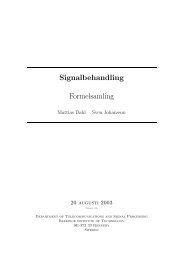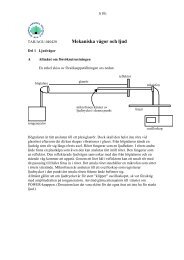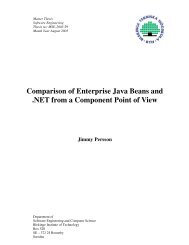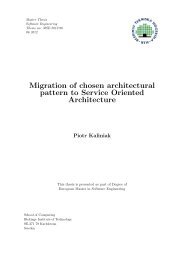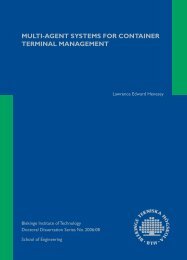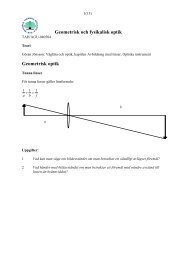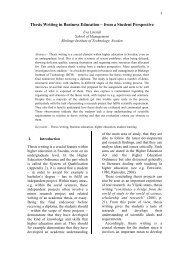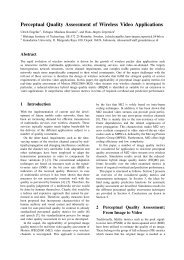According to their analysis, whenever a Directive is a minimum directive the implementationmust be based upon formal analysis of the minimum requirements of compliance. Basedupon formal criteria one would decide what has to be covered, what elements constitute arisk of being seen as non-compliance and what can safely be left out. According to theintentionalist approach of implementing the directive, the object is to align national legislationwith the intention of the directive, making the appropriate adaptations to achieve the goalsand objectives. According to the environmentalist approach the directive is used as a lever tochange national policy. Emmelin and Lerman highlight that one problem in evaluatingimplementation may be that the approach taken is not as clear-cut as the three types aboveindicate. Furthermore they stress that the approach chosen in the legal system may not befollowed in implementation that brings forward the importance of understanding professionaland organisational culture where the directive is applied which is discussed in Emmelin(1998a, 1998b). These models are further discussed in chaper 7.The view of <strong>SEA</strong> as a rationalistic process, which draws strongly on natural resourcemanagement, has been addressed by e.g. Therivel and Partidário (2000) and by Ortolano andShepherd (1995). According to the authors, this approach draws heavily on the EIA heritage;both with regard to the environmental assessment methodology, and to the extent that it is aprocess with clearly identifiable steps. The second approach is based upon the discipline ofpolitical science, with more emphasis on the nature of the process. Collaborative andconsensus building elements are central here while this approach is "[...] more concerned withprocess than outcome" (Voogd 1997). According to some authors, the variety of definitions ofand approaches to applying <strong>SEA</strong> have led to confusion as to the nature and the form of <strong>SEA</strong>.Tomlinson (2002) argues that by the end of the 1990s the term <strong>SEA</strong> was used in aninterchangeable manner for a wider range of different kinds of assessments, ranging frompolicy assessment for complex multi-sectoral systems to the assessments of large projects.Fischer and Seaton (2002) argue that this has resulted in that <strong>SEA</strong> has lost much of itsoriginal clarity and confused the relationship of <strong>SEA</strong> with other planning and impactassessment tools and that a more structured approach to <strong>SEA</strong> application is needed so it canact as a clear and effective planning instrument. Others writers claim that <strong>SEA</strong> does not needto fulfil the same procedural obligations as project EIA and to fulfil its purpose of improvingdecision making, on the quality of the final policy, planning or programme decisions, it needsto develop from the methodological focus to be applicable to decision making contexts, i.e.“[...] <strong>SEA</strong> has the potential to act as a mediating instrument, bridging problem perceptions withtechnical solutions, steering the assessment to facilitate the integration of environmental values intodecision-making processes, influencing decision-makers’ capacity of acceptance” (Vicente andPartidário 2006: 696).Partidário (2000) suggested that this should be done by shifting the emphasis from themethodological focus in <strong>SEA</strong> towards developing a conceptual framework that should beintegrated to existing decision-making procedures.The cross-boundary nature of <strong>SEA</strong>, between the technical and the societal and politicalconcerns has been acknowledged by several authors, and the way that the procedural steps ofdemonstrating environmental effects will lead to more environmental conscious decisionmaking or can contribute to the greater goals of promoting sustainable development.According to Bina (2003), the development of <strong>SEA</strong> has suffered from a lack of politicalcommitment to, and capacity for, environmental integration, sustainable development andstrategic planning (Caldwell 2000; Bartlett and Kurian 1999), i.e. it has focused on symptomsrather than the causes for difficulties which limits its effectiveness as a tool for environmentalchange.32
3.2 Relevance of planning theory for <strong>SEA</strong>Several <strong>SEA</strong>-scholars have identified the weak theoretical basis of <strong>SEA</strong> as problematic, i.e.that <strong>SEA</strong> publications have devoted insufficient attention to the development of theinstrument’s theoretical foundations (Bina 2003; Dalal-Clayton and Sadler 1998; Flynn et al1999; Lawrence 2000). Furthermore, the view has been expressed that <strong>SEA</strong> would benefitfrom drawing on theory from other disciplines such as planning as well as developments inthe field of sustainable development. According to Dalal-Clayton and Sadler (2005) thesefields and <strong>SEA</strong> rarely interact, and “…use different terminology for approaches and processes that havemuch in common and could benefit from sharing experiences and lessons.” According to Lawrence(2000) environmental assessment and planning theory have developed along parallel butseparate paths. Despite the similarities in principle and in the main steps of the <strong>SEA</strong> andplanning processes, only a handful of scholars have explicitly addressed planning theory intheir writings, and furthermore relatively little attention thus far has been given to planningtheory or to the policy and decision making processes (Kørnøv and Thissen 2000). Theimportance of understanding planning and planning theory is however now recognised by agrowing number scholars who have addressed the connection between planning theory andenvironmental assessment (e.g. Lawrence 2000; Richardson 2000, 2005; Hildén et al 2004).Many of the issues addressed in an <strong>SEA</strong> context in recent years, such as the best way ofinvolving the public in the decision-making process, and the question of how to handleinformation in a highly politicised context etc, have of course previously been discussed atsome length in the sphere of planning theory. Of key relevance here are Habermas’ theoriesof discourse ethics and communicative rationality, which provide the theoretical cornerstonesto the communicative planning movement. Moreover, many of these issues are of the essenceof the concept of <strong>SEA</strong> (Wiklund 2006).The following section provides some insight into recent developments in planningtheory with regard to its potential relevance for the study of <strong>SEA</strong>. There is however as yet noconsensus within the Environmental Assessment research community over how <strong>SEA</strong> shall beintroduced into the planning system, or in respect of what the desired effects of the directiveare. As an example of these differences in opinion, one line of argument is that <strong>SEA</strong> shouldbe flexibly adapted to the planning process, whereas others argue for a separate <strong>SEA</strong>procedure independent from the planning process. Furthermore, the conceptions of the roleof planning often differ markedly, and that there are several different schools of planningrepresenting different ideas of ‘what planning is’, i.e. what is its purpose and what can beachieved through the application of the planning instrument. In the following sections someexamples are given of the linkages between issues found in planning theory discourseconsidered to be of relevance to the current <strong>SEA</strong> discussion.3.2.1 Recent discussions in planning theory of relevance for <strong>SEA</strong>Planning theory has developed as an academic field alongside the establishment and evolutionof planning as a separate profession since the mid-20 th century. However, the extent to whichplanning theory exists as a separate theoretical sphere is argued among academics in theplanning field. Planning as an activity covers a wide field, both with regard to actions that areregulated by planning which occur at different administrative levels as well as different stagesof the planning process and the wide scope in types of plans being prepared. Furthermore,the legislation that sets the framework for the national planning system differs betweencountries. Planning as a profession is based upon other professional disciplines such asarchitecture, engineering and geography and effective in a social and political sphere, the viewof the profession and its function differs between institutional and organisational contexts.According to Richardson (2000) major efforts have been made to define what planning is,through the development of paradigms of planning thought. “However, we have yet to see a33
- Page 1 and 2: sea in the context of land-useplann
- Page 4 and 5: Blekinge Institute of Technology Li
- Page 7: AcknowledgementsThis thesis has dev
- Page 10 and 11: CHAPTER 5 INTRODUCTION OF SEA TO TH
- Page 13: PART I - Introduction to the resear
- Page 16 and 17: In this research the introduction o
- Page 18 and 19: my studies and work in the area as
- Page 20 and 21: FIGURE 1.1. BASIC TYPES OF CASE-STU
- Page 22 and 23: • Process/Strategy Model; i.e. co
- Page 25 and 26: Chapter 2The SEA Directive 2001/42/
- Page 27 and 28: was extended again to also encompas
- Page 29 and 30: The plans and programmes referred t
- Page 31 and 32: effects), with less attention given
- Page 33 and 34: widespread voluntary application of
- Page 35 and 36: assessment instruments such as Risk
- Page 37: 3.1.4 The origins of SEA and its re
- Page 41 and 42: development of its central ideas an
- Page 43 and 44: aspects of environmental considerat
- Page 45 and 46: FIGURE 3.2. SEA TOOLS IN RELATION T
- Page 47: planning theory in respect of envir
- Page 51 and 52: Chapter 4 Introduction of SEA to th
- Page 53 and 54: to the ordinance (2005:356), the fo
- Page 55 and 56: planning area and the 0-alternative
- Page 57 and 58: 4.4 Preparation work for SEA applic
- Page 59 and 60: Housing and Planning has argued tha
- Page 61 and 62: Municipal comprehensive plans (öve
- Page 63 and 64: 4.6.2 On-going legal revisionsOn-go
- Page 65 and 66: municipal comprehensive plans (25 p
- Page 67 and 68: A pilot study on impact assessment
- Page 69: despite the committee’s suggestio
- Page 72 and 73: esources, and the community, includ
- Page 74 and 75: There amongst it shall be decided w
- Page 76 and 77: Information made available in the r
- Page 78 and 79: Environmental assessment has been i
- Page 80 and 81: Level Authority Type ofplanningDesc
- Page 82 and 83: National initiatives for sustainabl
- Page 84 and 85: limited research that has been carr
- Page 86 and 87: equired by the SEA directive. Simil
- Page 88 and 89:
- Setting the context and objective
- Page 90 and 91:
Screening (the determination ifthe
- Page 92 and 93:
assessment for the EU structural fu
- Page 94 and 95:
Level Authority Type ofplanningDesc
- Page 96 and 97:
experience of sustainability apprai
- Page 98 and 99:
ensuring that environmental assessm
- Page 100 and 101:
The second issue that raises some q
- Page 103 and 104:
Chapter 7 A Comparative Description
- Page 105 and 106:
system. This notion is reinforced b
- Page 107 and 108:
Who decides?The authorities respons
- Page 109 and 110:
plans at the municipal level (Impac
- Page 111 and 112:
experience of assessing the plan’
- Page 113 and 114:
preconditions for the introduction
- Page 115 and 116:
that the directive has spurred the
- Page 117 and 118:
the SEArequirements,i.e. whichplans
- Page 119 and 120:
Chapter 8 FindingsThe aim of the re
- Page 121 and 122:
importance of improved knowledge an
- Page 123 and 124:
At the same time HB has had access
- Page 125 and 126:
References and documentsAlfredsson,
- Page 127 and 128:
Christoferson, I. (ed), (2001) Swed
- Page 129 and 130:
Kørnøv, L. (1999) Integrating SEA
- Page 131 and 132:
Sheate, W., Byron, H., Dagg, S. and
- Page 133 and 134:
European Union’s publicationsEC (
- Page 135 and 136:
English documents:Countryside Counc



